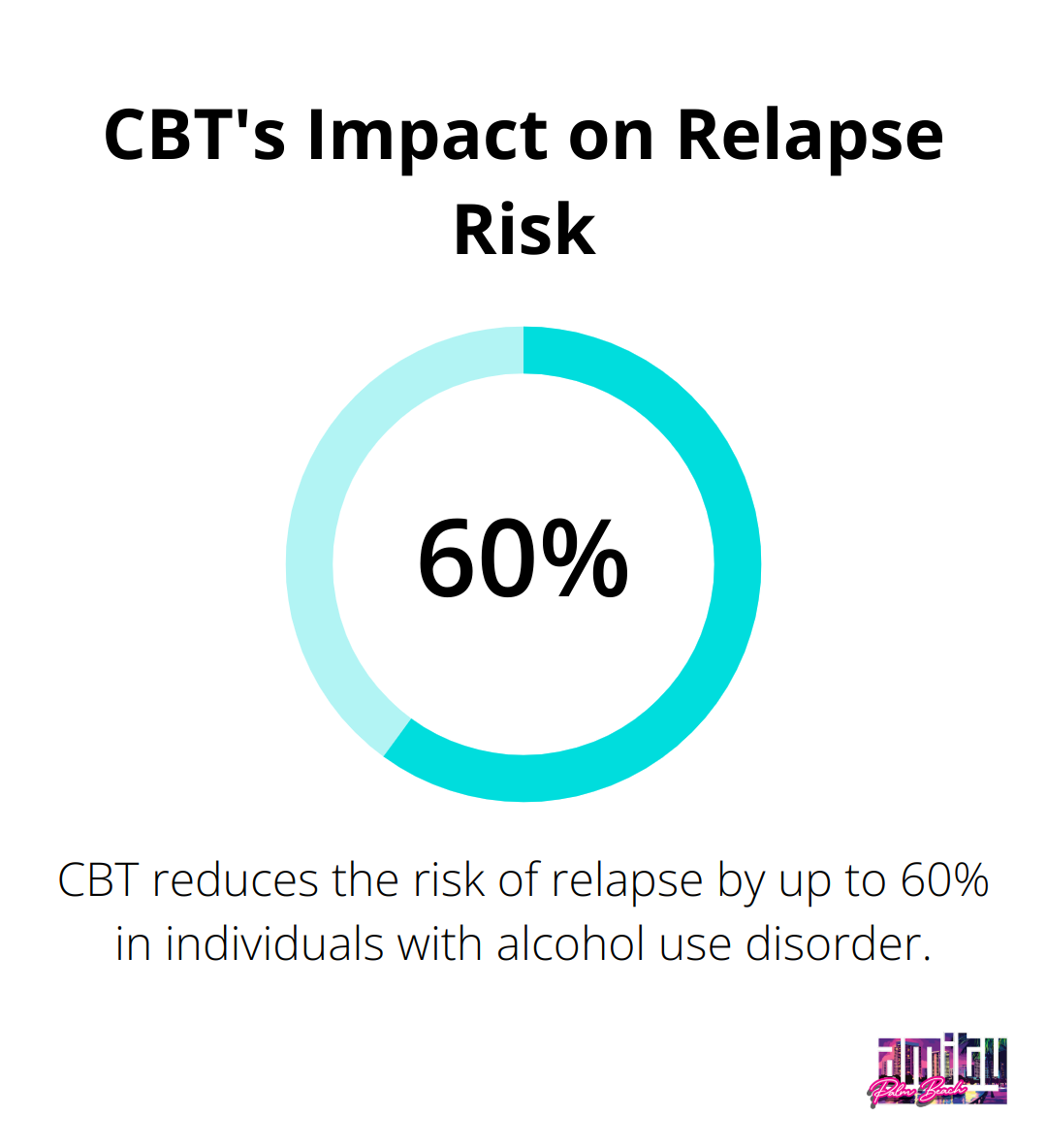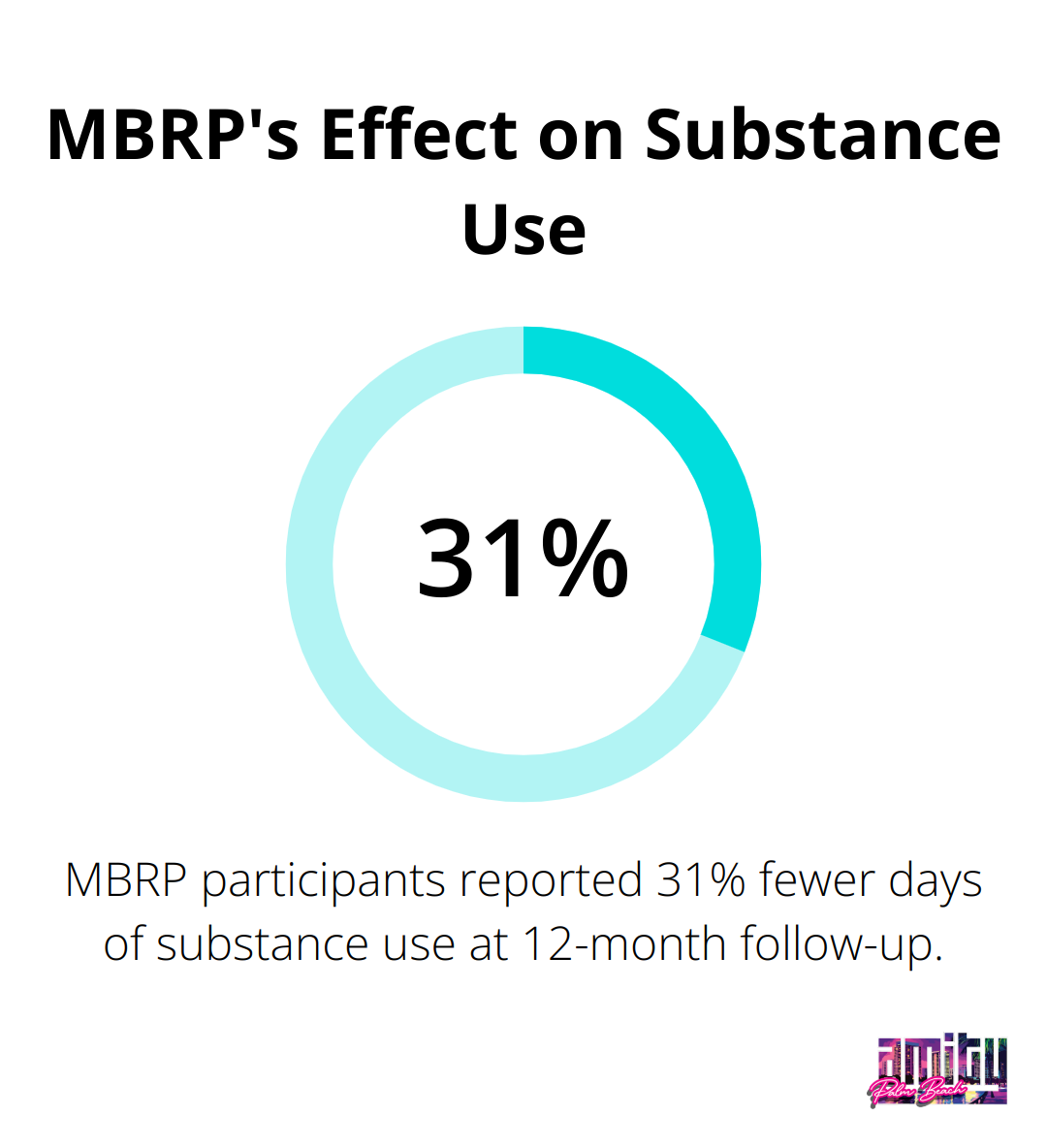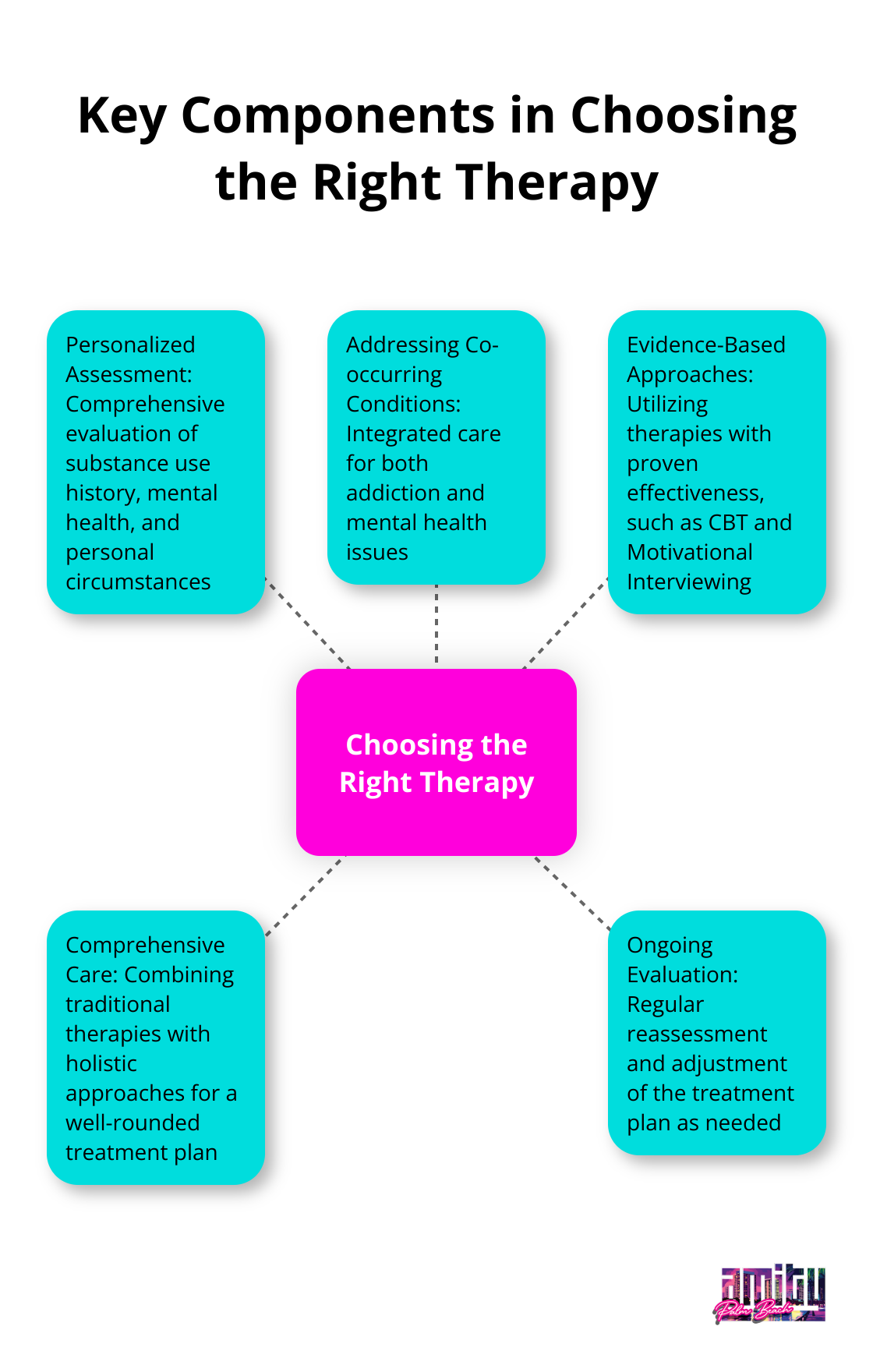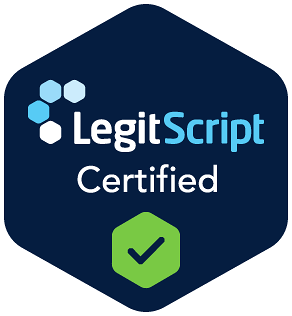At Amity Palm Beach, we understand the importance of finding the right path to recovery from addiction.
Exploring various therapy options can be overwhelming, but it’s a crucial step towards healing and long-term sobriety. This guide will help you navigate through different therapeutic approaches, from traditional methods to holistic alternatives.
We’ll also provide insights on how to choose the most effective treatments for your unique journey to recovery.
Effective Therapy Approaches for Addiction Recovery
At Amity Palm Beach, we believe in the power of evidence-based therapies to support lasting recovery. Let’s explore some of the most effective approaches we use to help our clients overcome addiction and build a foundation for long-term sobriety.
Cognitive Behavioral Therapy (CBT)
CBT forms a cornerstone of addiction treatment. This approach helps individuals identify and change negative thought patterns and behaviors associated with substance use. A study published in the Journal of Consulting and Clinical Psychology found that CBT reduced the risk of relapse by up to 60% in individuals with alcohol use disorder.

We use CBT to help our clients develop coping strategies, manage triggers, and build resilience. For example, we might work with a client to recognize that stress at work often leads to drinking, then develop healthier stress management techniques like deep breathing or exercise.
Dialectical Behavior Therapy (DBT)
DBT proves particularly effective for individuals who struggle with emotional regulation and interpersonal difficulties alongside addiction. This therapy combines elements of CBT with mindfulness practices.
At Amity Palm Beach, we’ve seen great success using DBT to help clients with co-occurring disorders. One of our recent clients (a young professional with alcohol addiction and anxiety) learned to use DBT skills like distress tolerance and emotion regulation to manage cravings and reduce anxiety without turning to alcohol.
Motivational Interviewing (MI)
MI is a client-centered approach that helps individuals resolve ambivalence about change. It’s particularly useful in the early stages of recovery when motivation might be low.
In our experience, MI can change the game for clients who hesitate about treatment. We use this approach to help clients explore their own reasons for change, rather than impose external motivations. This often leads to stronger commitment to recovery and better long-term outcomes.
Group and Family Therapy
While individual therapy plays a vital role, group and family therapy also contribute significantly to recovery. Group therapy provides peer support and accountability, while family therapy addresses the impact of addiction on relationships and helps build a supportive home environment.
Research has shown that family involvement in addiction treatment can significantly improve outcomes. For instance, Brief Strategic Family Therapy (BSFT) has been found to significantly decrease parental substance use at follow-up and was more effective in treating adolescent substance abuse.
Holistic Approaches
To complement traditional therapies, we also incorporate holistic approaches (such as mindfulness meditation, yoga, and art therapy). These practices help clients develop new coping skills, reduce stress, and improve overall well-being.
As we move forward, it’s important to consider how these various therapy options can be combined and personalized to meet each individual’s unique needs. Let’s explore the world of holistic and alternative therapies in more depth.
Holistic and Alternative Therapies in Addiction Treatment
At Amity Palm Beach, we embrace a comprehensive approach to addiction recovery. Our treatment philosophy integrates traditional methods with alternative therapies to address the whole person – body, mind, and spirit.
Mindfulness and Meditation Practices
Mindfulness meditation stands as a powerful tool in our holistic program. Research shows that mindfulness-based relapse prevention (MBRP) can significantly reduce substance use. A study found that at the 12-month follow-up, participants in MBRP reported 31% fewer days of substance use compared to those in other treatment approaches. We teach our clients simple techniques they can use anywhere, such as the 5-4-3-2-1 grounding exercise (which engages all five senses to manage stress and anxiety).

Art and Music Therapy
Creative expression through art and music offers profound healing potential. Our clients often create murals, write songs, and form small bands as part of their recovery journey.
Yoga and Physical Exercise
Regular physical activity plays a vital role in addiction recovery. Our program includes daily fitness activities, from beach yoga to strength training, tailored to each client’s abilities and interests.
Nutritional Therapy
Proper nutrition supports physical recovery and overall well-being. Many individuals enter treatment with nutritional deficiencies that hinder healing. Our on-site nutritionist develops personalized meal plans and teaches clients how to maintain a balanced diet after leaving our care.
Complementary Therapies
We’ve observed remarkable results with acupuncture in managing withdrawal symptoms and reducing cravings.
Other complementary therapies we offer include:
- Equine therapy: Builds trust and non-verbal communication skills
- Biofeedback: Helps clients gain control over physiological processes
- Aromatherapy: Uses essential oils to promote relaxation and reduce anxiety
These holistic and alternative therapies work best when integrated with evidence-based therapies like CBT and group therapy. Our goal is to provide a comprehensive, personalized recovery experience that addresses all aspects of our clients’ well-being.
Now that we’ve explored various holistic and alternative therapies, let’s examine how to choose the right combination of therapy options for your unique recovery journey.
How to Choose the Right Therapy for Your Recovery
Personalized Assessment: The Key to Effective Treatment
Selecting the right therapy options for your addiction recovery journey impacts your success in overcoming addiction and maintaining long-term sobriety. The first step in choosing the right therapy is a comprehensive assessment. This evaluation should cover your substance use history, mental health status, physical health, and personal circumstances. A thorough assessment conducted by experienced clinicians helps understand your unique needs and create a tailored treatment plan.

For example, if you struggle with both alcohol addiction and anxiety, a combination of Cognitive Behavioral Therapy (CBT) for addiction and Dialectical Behavior Therapy (DBT) for anxiety management might be recommended. This personalized approach ensures that all aspects of your health are addressed.
Addressing Co-occurring Mental Health Conditions
Co-occurring mental health conditions are a significant concern in substance use treatment. The Drug Abuse Warning Network (DAWN) provides interactive data tools that highlight the importance of addressing both mental illness and substance use disorders simultaneously.
If you have a co-occurring mental health condition, look for a treatment center that offers integrated care. This approach ensures that both your addiction and mental health issues are treated concurrently, leading to better outcomes. For instance, if you’re dealing with depression alongside addiction, a program that combines medication management with therapy might be most effective.
Evaluating Treatment Effectiveness
When considering different therapy options, it’s important to look at their proven effectiveness. Evidence-based therapies, such as CBT and Motivational Interviewing (MI), have been shown to be effective in treating substance use disorders. MI is particularly successful in enhancing motivation and readiness for change.
One way to gauge effectiveness is to ask about success rates. While no treatment center can guarantee success, they should be able to provide data on their outcomes. It’s also worth considering newer, innovative therapies that show promise.
The Power of Comprehensive Care
While individual therapies are important, a comprehensive approach often yields the best results. This might involve combining traditional talk therapies with holistic approaches like yoga or art therapy. The key is finding a program that offers a range of options and can adjust your treatment plan as your needs change.
For example, you might start with intensive individual therapy during detox, transition to group therapy as you progress, and incorporate holistic therapies like meditation to manage stress and cravings. This flexible, multi-faceted approach can provide you with a variety of tools to support your recovery.
Choosing the right therapy isn’t a one-time decision. As you progress in your recovery, your needs may change, and your treatment should evolve accordingly. The best treatment programs will regularly reassess your progress and adjust your care plan as needed.
The right therapy for your recovery is one that resonates with you, addresses your specific needs, and provides you with the support and tools you need to achieve lasting sobriety. Don’t hesitate to ask questions, express your preferences, and actively participate in shaping your treatment plan. Your journey to recovery is unique, and your therapy should reflect that.
Final Thoughts
The world of addiction recovery offers numerous therapy options. Each approach, from Cognitive Behavioral Therapy to mindfulness practices, provides unique benefits. We at Amity Palm Beach understand the importance of finding the right combination that aligns with your individual needs and circumstances.
Professional guidance plays a vital role in navigating these therapy options. Our team of experts can help you explore various treatments and determine the most effective path for your recovery. We encourage you to maintain an open mind and willingness to try different approaches (what works for one person may not work for another).
Your journey to recovery is unique, and your treatment plan should reflect that. We invite you to take the first step today and explore your options for a healthier life. Our commitment lies in providing comprehensive therapy options in a supportive, non-judgmental environment to help you build a strong foundation for lasting sobriety.




